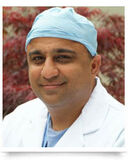Cardiologist Q&A: What Should You Know About Atrioventricular Block After Heart Valve Surgery?
Written By: Adam Pick, Patient Advocate, Author & Website Founder
Page Last Updated: June 3, 2025
I received several great questions during our ‘Ask Me Anything’ video series at the Heart Valve Summit. For example, Pamela posted at our Facebook page, “Can you talk about Atrioventricular Block after heart valve surgery?”
To answer Pamela’s question, I was very lucky to connect with Dr. Robert Bonow, the former president of the American Heart Association, one of the lead authors of the Heart Valve Management Guidelines and a Professor of Cardiology at Northwestern Medicine in Chicago. So you know, Dr. Bonow is a great guy who has treated many patients from our community. 🙂
Here is Dr. Bonow’s response to Pamela’s question…
I hope that helped Pamela (and perhaps you) learn more about atrioventricular block after heart valve surgery. Many thanks to Pamela for her question and a special thanks to Dr. Robert Bonow for his continued support of our community!
Keep on tickin!
Adam
P.S. For the hearing impaired members of our community, I have posted a written transcript of my interview with Dr. Bonow below.
Adam: Hi, everybody. It’s Adam with HeartValveSurgery.com. We’re here at the Heart Valve Summit in Chicago Illinois. I’m thrilled to be joined by Dr. Robert Bonow who is not only the Professor of Cardiology at Northwestern Medicine, but he’s also the past President of the American Heart Association. Thanks so much for being with us.
Dr. Bonow: Thank you, Adam. I’m happy to be here.
Adam: As you know, we’re answering your questions that were posted on our Facebook page. Bob, this question comes in from Pamela Whitcomb. She has a question we’ve never talked about here at HeartValveSurgery.com. She asked, “Please talk about AV block. I had a successful aortic valve replacement with a tissue valve in 2013.”
Dr. Bonow: Okay. AV block is a short way of saying atrial ventricular block. It’s an electrical block. You think of your heart the way I tell my patients as a car. It’s got moving parts and valves. It’s also got fuel lines which are the coronary arteries and an electrical system also. Your car runs because all those things tend to work together; the pumps, the motor, the fuel lines, the electricity. You turn on the ignition if these go okay. Any one of those things can go wrong also, and that makes your car in-operational even if the motor’s okay if the electrical system is not working well.
Your heart works the same way. The chambers are connected electrically that allows your atrium to contract. When it does that, it sends an electrical signal to the ventricle which then wakes up and contracts also. That way, the atrium and the ventricle kind of work in sync. That’s the atrioventricular conduction system. It’s like nervous tissue inside the heart that connects the chamber so they’re working mechanically because the electrical system is making them synchronize.
AV block means there has been a disruption of the connection between the atrium and the ventricle. It comes in different stages. Sometimes the conduction is slower; we call that the first-degree AV block. Sometimes it misses a beat or two; that’s called second-degree AV block. Sometimes it’s completely disrupted or totally disconnected electrically; that’s called a third-degree AV block.
Now the trick for you, I think, Pamela, is that you mentioned you had an aortic valve replacement. The conduction system when it runs between the atrium and the ventricle runs right down the septum between the two chambers on the right and left side of the heart and right past the aortic valve. People who have aortic valve disease many times as the valve calcifies, the calcium itself can begin to encroach upon the conduction system and cause a problem. That could be an issue in any patient with aortic valve disease when the valve calcifies but also with surgery.
Sometimes the surgeon, to delicately dissect out the valve and replace a new valve, can’t help sometimes but to cause some disruption of the conduction system. That could be temporary in some cases related to the surgery where you’ll have some swelling or edema from the surgery; that may only be temporary. You may have some inflammation related to the surgery which could be temporary. Sometimes it’s not temporary. Sometimes it can be permanent.
Not knowing all of the details of your situation, Pamela, I can’t tell you whether in your case it was something that was going on before the surgery or after the surgery. The point is it’s not uncommon. Many times it is self-limited and the heart conduction goes back to normal afterwards. Some patients will need pacemakers.
The good news, I think though, is that you had a successful valve replacement, and your heart mechanically now is working well. We can always deal with the electricity either with medicines or with our pacemakers and things to make the electrical system work again in synchrony, and hopefully your heart now is doing fine having had that valve replacement.
Adam: Pamela, I hope that helped you. I know it really helped me learn about AV block. Bob, as always, I want to thank you for your incredible support of our community. Our patients that come to you always have incredible things to say about you. Just thanks for your support of our community.
Dr. Bonow: Thanks for everything you do for all of our patients, Adam. Your information is really so highly valuable to everybody. Thank you.












